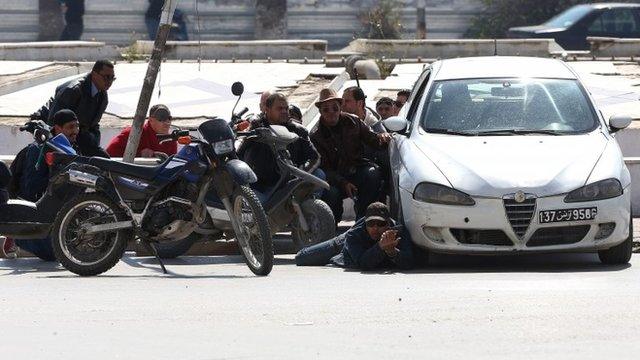Tunis museum attack: President urges unity to fight terror
- Published
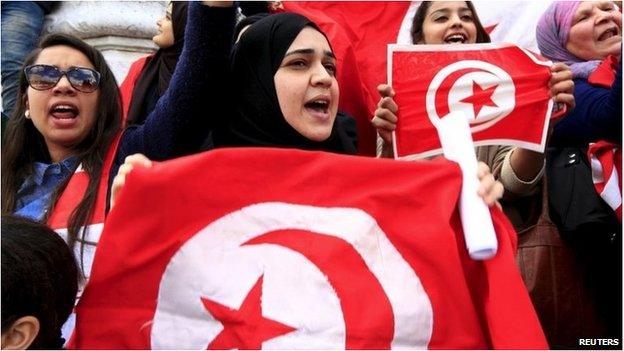
President Essebsi said security was the main challenge now facing Tunisia
Tunisia's president has urged Tunisians to unite to fight terrorism, two days after an attack on the Bardo museum in the capital Tunis killed 25 people, mostly foreign tourists.
"We won't win if we don't stand together," Beji Caid Essebsi said in a national address marking 59 years of Tunisia's independence from France.
Islamic State has said it was behind the attack on the museum, which is next to the country's parliament.
Nine people have since been arrested.
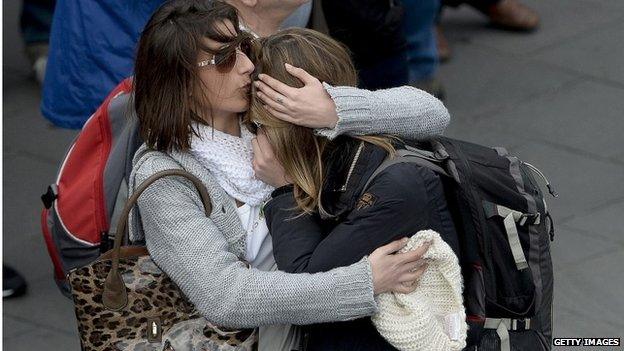
Tourists from cruise ship groups caught up in the terror attack have arrived in Spanish ports
The presidency said four of those arrested were directly linked to the attack and five had "ties to the cell" that carried out the attack.
Many of those who died and were injured were tourists from two cruise ships which have now have arrived in Spanish ports.

At the scene: BBC's Naveena Kottoor in Tunis
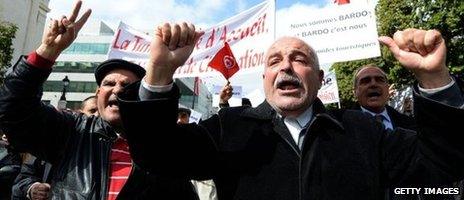
There were demonstrations outside the museum for a second day
It is a grim scene at Charles Nicolle hospital in central Tunis. Family members of those who died in the attack on Wednesday have been arriving at the morgue to identify and repatriate their loved ones. Some were carrying flowers and most of them were being looked after by the consular staff of their respective embassies.
The death toll has climbed to 25 now, and some victims are still being identified. At the surgical ward nearby, patients are still being treated for injuries. The French interior minister and the Tunisian president paid a visit this afternoon.
Earlier, people came to the Bardo museum to express sympathy for those who died. A group of Tunisians were holding up banners that read: "Terrorism has nothing to do with Islam or Tunisia".

President Essebsi, who won Tunisia's first free presidential election in December, called on Tunisians to unite "in the face of terrorism, like their forefathers did in the face of the colonisers".
The BBC's Aidan Lewis in Tunis says there is a strong security presence on the streets as people came into the centre of the city for an independence day concert.

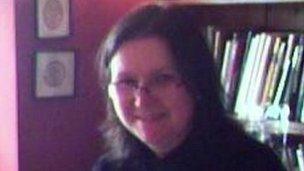
Sally Adey was among the victims
22 of the dead were foreigners
At least 17 were cruise ship tourists
Officials say the victims include four Italians, four French and three Japanese nationals, three Poles, two Spaniards, two Colombians and one each from Britain and Belgium
The nationalities of two victims remain unconfirmed
The British woman was a 57-year-old mother from Shropshire
Italian media say one of the Italian victims was Francesco Caldara, on his first cruise, accompanying his girlfriend on a birthday trip
French media have named two of the French nationals as Jean-Claude Tissier, 72, and Christophe Tinois, 59
Australian media say one of the Colombians who died, Javier Camelo, also had Australian nationality. The 28-year-old had gone on a cruise with his parents to celebrate his graduation. His mother was also killed.

The two gunmen who were killed as security forces stormed the museum have been identified as Yassine Laabidi and Hatem Khachnaoui.
A worker from the parliament building next to the attacked museum tells BBC News of the horror of that that Tunis had witnessed
Tunisian security official Rafik Chelli told the el-Hiwar el-Tounsi TV channel that they had slipped out of Tunisia in December and received weapons training in Libya.
But he said the authorities did not have details about where or with which group they had trained.
- Published20 March 2015
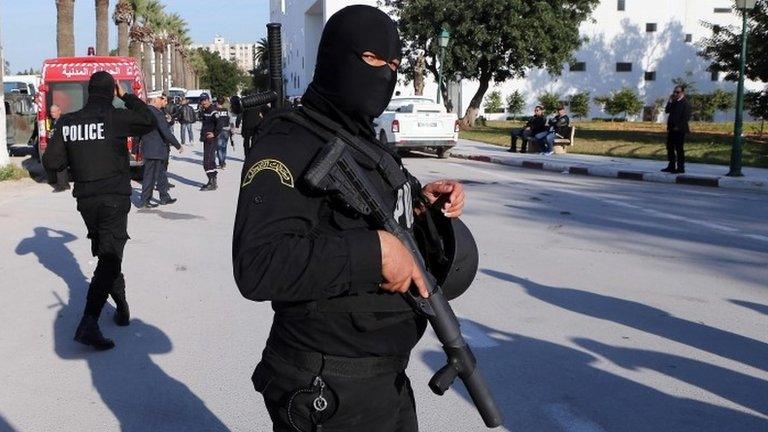
- Published19 March 2015
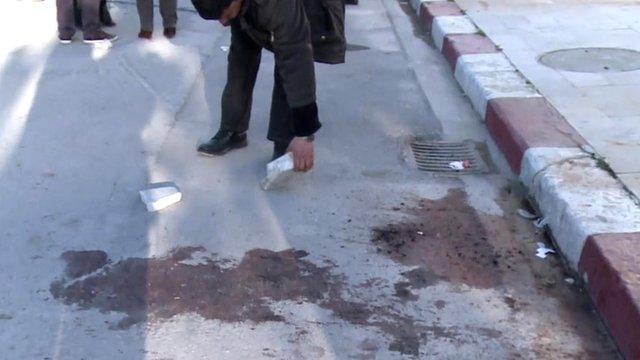
- Published19 March 2015
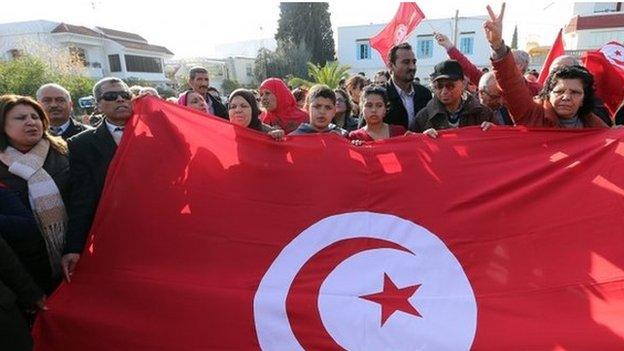
- Published19 March 2015
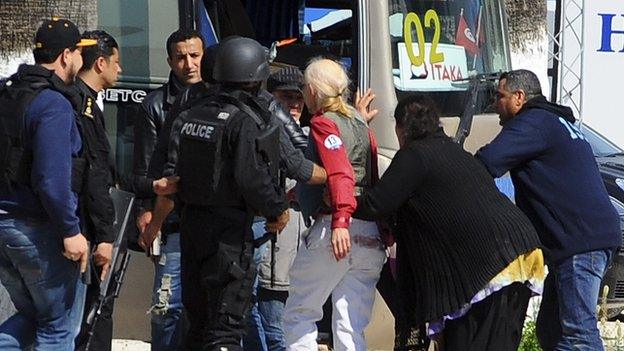
- Published19 March 2015
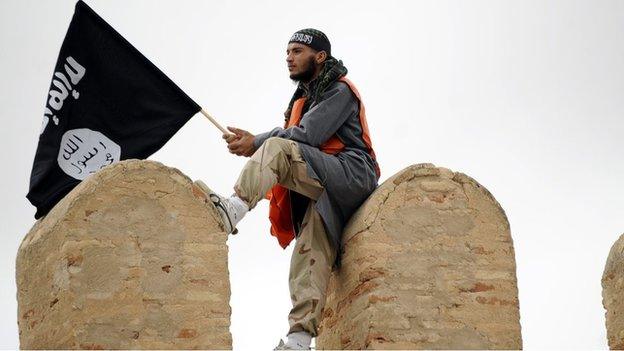
- Published19 March 2015
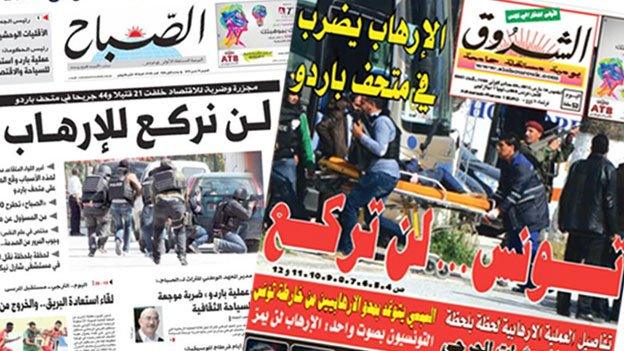
- Published18 March 2015
